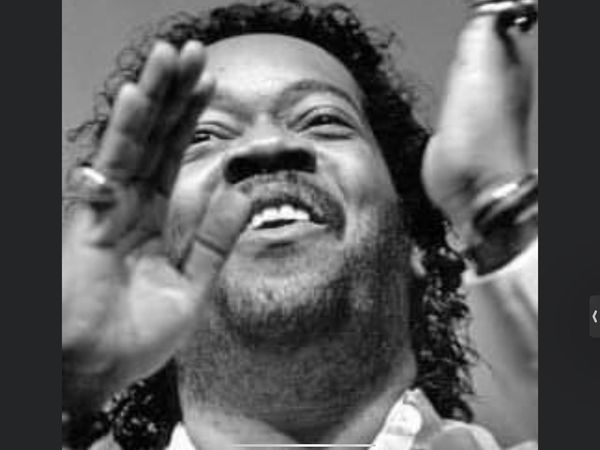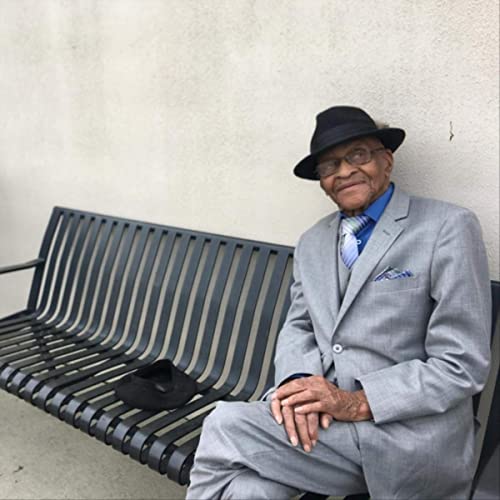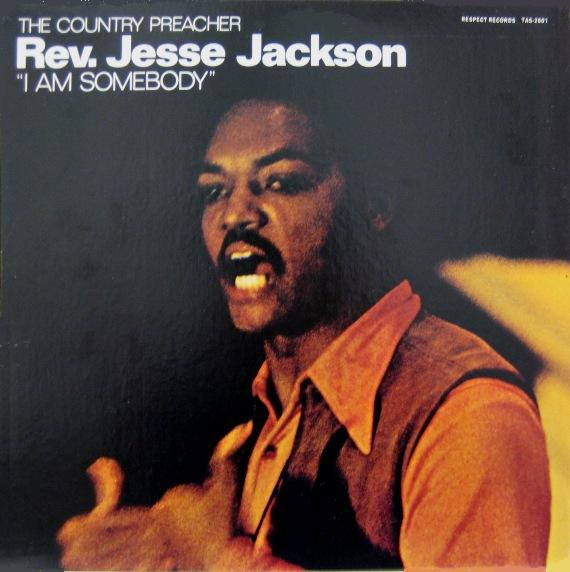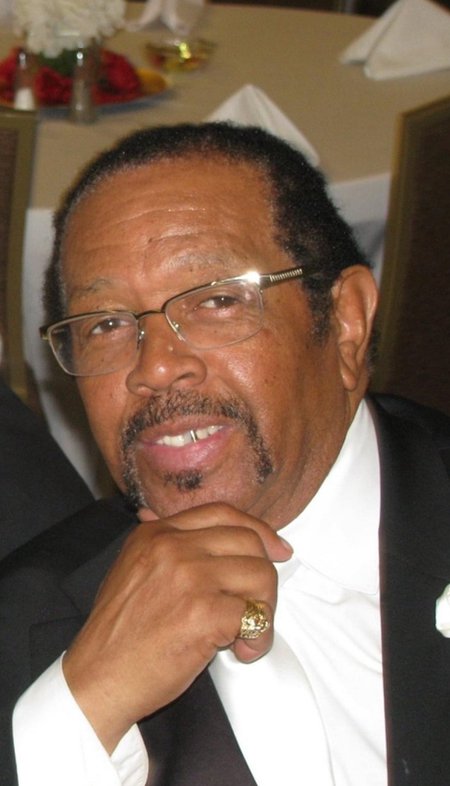By Robert M. Marovich
John Adams and Thomas Jefferson, two towering figures in the history of the United States, passed away on the same day, July 4, 1826, the fiftieth anniversary of the Declaration of Independence.
Wednesday, August 2, 2023, saw the passing of two towering figures in the history of African American gospel music: musician and educator Kenneth Woods Jr. and Professor L. Stanley Davis. They passed away twelve years to the day of their mutual friend, DeLois Barrett Campbell of the Barrett Sisters and Roberta Martin Singers. Both Woods and Davis were fonts of information. Woods remembered birthdates and addresses of gospel singers with uncanny accuracy. Davis, originally from Baltimore, recounted with fidelity the stories of choirs, churches, musicians, directors, pastors, and pastor’s wives, and could recite the maiden names and every married surname of female gospel singers. When it came to gospel music history, Davis and the late Nash Shaffer were devastating. If they didn’t know, it didn’t need to be known.
Like a veteran minister, Davis could speak for hours on gospel music history, weaving the tale from the pre-Thomas A. Dorsey era to today. To that point, many gospel historians treat the year 1969 as a sort of musical DMZ separating traditional from contemporary, and are careful not to venture to the other side. Not Professor Davis. He was just as conversant and passionate about the genre’s pioneers and legends as about the newcomers working hard to gain attention. Not only did he attend the annual Stellar Gospel Music Awards but he also reserved blocks of rooms in a nearby hotel for fellow aficionados seeking to enjoy the ceremony. Then Prof held court at breakfast, where he dispensed the latest chatter about the music industry like a latter-day Hedda Hopper.
Professor Davis taught gospel music at Northwestern, DePaul, and Loyola University. He helped found the Northwestern Community Ensemble. He sang and accompanied singers. He brought Chicago gospel music to Sweden. He was part of the leadership that inaugurated the “O For a Thousand Tongues to Sing” festival that, over the years, evolved into the Chicago Gospel Fest. He put together a guide to gospel music and served on the committee that inducted the first two dozen individuals into the Chicago Gospel Music Hall of Fame. He was a regular at the monthly meetings of the Chicago Chapter of the Gospel Announcers Guild of the Gospel Music Workshop of America; that’s where we first met.
More than a decade ago, I was privileged to sit on a gospel music history panel with Pastor Mack Mason, radio veteran Reggie Miles, and Professor Davis at a Florida gospel confab sponsored by Ambassador Dr. Bobby Jones. We had to be on point, too—no less than Albertina Walker, the Queen of Gospel, was sitting in the audience. At that same weekend, Davis introduced attendees to another pioneer, Sullivan Pugh, one-half of the husband-wife duo the Consolers.
When I completed a decent draft of my first book, A City Called Heaven: Chicago and the Birth of Gospel Music, there were two people I could count on to provide the finest feedback: Anthony Heilbut and Stanley Davis. If my book passed their litmus test, I was in good stead. If not, it was back to the writing table.
My favorite story about Professor Davis concerns Sid Ordower’s Jubilee Showcase television program. While members of the show’s studio audience often clapped along to the rhythmic music, they were either too keenly aware of the glare of the television cameras to shout, or admonished not to do so by studio personnel. This bewildered Davis. He recalled that some artists preparing to perform on the show got nervous “because back then, the audiences didn’t shout. This did not typify a typical church audience. I don’t know whether it was fear that it was coming into homes on Sunday morning, and how people would view it, but everybody was just sitting there. I became a talent coordinator of the show in its latter years because [Sid] said, ‘Well, if you think you can do a better job, then you do it.’ So I did!”
On Facebook, Dr. Feranda Williamson of the Chicago Mass Choir deemed Professor L. Stanley Davis the Father of Gospel Music History. No title is more fitting. We who endeavor to follow in his footsteps stand on his shoulders.
L. Stanley Davis, you stayed saved. Now take your rest in that celestial city where there is only howdy, howdy, and never goodbye. May a thousand tongues sing your passage through the pearly gates. To paraphrase Eugene Smith’s comment about Roberta Martin, if Stanley Davis doesn’t get into heaven, the rest of us can just stop and forget it.
7 Comments
Leave A Comment
Written by : Bob Marovich
Bob Marovich is a gospel music historian, author, and radio host. Founder of Journal of Gospel Music blog (formally The Black Gospel Blog) and producer of the Gospel Memories Radio Show.











 Visit Today : 10
Visit Today : 10 This Month : 51
This Month : 51
This was beautiful
Thanks for sharing Mr. Clark
This was wonderful Stanley would be smiling now RIP Stanley you will be missed ❤️
Thank you, Bob. I reached out several times, but was never fortunate enough to connect with Professor Davis. So glad you did.
Lurell Stanley Davis was a one-of-a-kind gospel genius since the age of 7 as he grew up in Baltimore, Maryland, where his family and friends recalled how he sang, played the piano and directed. It was great training because after graduating from Friends High Shool he set his sights on Chicago — matriculating at Northwestern University.. His freshman year was spent discovering the rich gospel history of Chicago fame and literally learned at their feet. Then in his sophomore year he was convinced to stay on campus more — and on May 8, 1971 Stanley and two other undergraduate students founded the Northwestern Community Ensemble — this black choir at NU celebrated 53 years of delivering its musical ministry on campus and around Chicago and the county. Lurell’s brilliance and love of the gospel art form will be missed. #TGBATGHP #NUBAAProud I joined NCE in January 1972 as a tenor, and Stanley took pity on me and allowed me in.
Lurrell Stanley Davis and I were like “Blood Brorhers” for over 40 years. Communicating in some manner daily, he and I loved the Academic, Gospel Music History and performance conversations quite frequently. His TRANSITION continues to have me “NUMB” – emotionally. However, my Spirit rejoices because God allowed him to be my Brother all these years, and GOD CALLED him HOME!
Stanley Davis was my god-brother and friend. He leaves an indelible mark on the lives of many; he will always be remembered for his wisdom, kindness and laughter. He was the beloved godson of Revs. Drs. Addie and Claude Wyatt
Fantastic article and remembrance. I learned a lot about the Professor from this writing. I knew him because he attended our monthly EARS meetings (Engineering and Recording Society) where he was often surrounded by fans eager to learn about his latest commentary and opinions. He was always erudite, informative and humorous. One of my fave friends at our meetings. Thank you for this really well done remembrance.